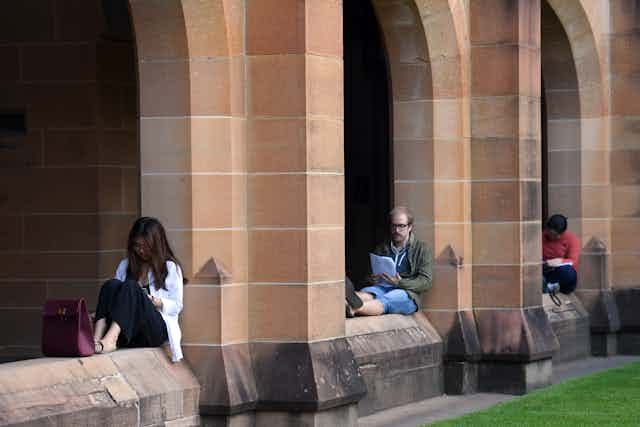The Morrison government is setting up a University Foreign Interference Taskforce, as it grapples with encroachments by China into Australia’s higher education sector.
The taskforce, to be announced in a Wednesday National Press Club address by Education Minister Dan Tehan, will have members from universities, national security agencies and the federal education department.
Representation will be on a fifty fifty basis between the university sector and the government. Tehan says in his speech, extracts of which were released ahead of delivery, that this will provide “a perspective of the sector’s unique position partnered with frank advice from our government”.
There has been mounting concern over a range of foreign interference issues affecting the sector. These include China targeting sensitive research for non-transparent transfer of technology; the apparent inability of some universities to be fully aware of the nature of the Chinese institutions they are dealing with; the Chinese government’s grooming of some Australian student organisations; the use of Chinese money for soft propaganda; and the cyber penetration of university systems to obtain research intellectual property and as well as personal details.
Read more: University China centres are vulnerable to vested interests because of a lack of funding
The taskforce will have a wide remit, with Tehan outlining its work in four key areas.
A cyber security working group “will ensure our ecosystem is resilient to unauthorised access, manipulation, disruption or damage”. It will help “better manage and protect our networks, as well as detect and respond to cyber security incidents”
A research and intellectual property group is to “protect against deception, undue influence, unauthorised disclosure or disruption to our research, intellectual property and research community, while also protecting academic freedom”
A foreign collaboration group will have the task of making sure “collaboration with foreign entities will be transparent” and not harm Australia’s interests
A culture and communication group is to “foster a positive security culture” by engaging with government and the community to “increase awareness and improve research and cyber resilience”.
Read more: Australian universities must wake up to the risks of researchers linked to China's military
Tehan will also announce the government wants questions relating to freedom of speech included in the Quality Indicators for Learning and Teaching, which is survey data that includes student feedback about higher education.
“I will work with the sector on what questions to ask to measure diversity of opinion on campus and whether students feel empowered to voice non-conformist opinions,” he says.
“I ask the sector to also seek the views of their staff on this matter, and I will work with the sector to develop a set of uniform questions to ask.
"I believe universities want to know if students and staff are afraid to discuss certain topics.
"It is only through diversity of thinking, perspective and intellectual style that we get innovation and problem solving,” Tehan says in his speech.
Tehan will also release the results from an inquiry done by former Victorian Liberal premier Denis Napthine for a strategy for regional, rural and remote education. Its recommendations include improving access for students from these areas to financial support, to enhance fairness and more equal opportunity.

